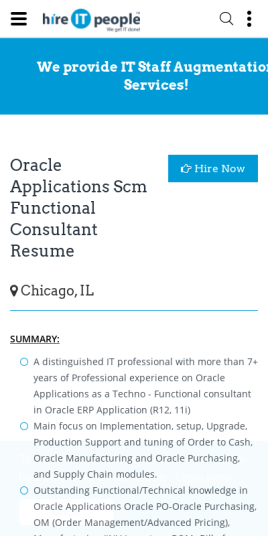
The United Kingdom has a process called company formation. It involves creating and incorporating a company. This process is also known to be called company registration. Company formation is also used in the Republic of Ireland. There are several business types, including sole proprietorships, partnerships and corporations. You will need to select the one that is most appropriate for your industry and needs.
Corporations
A corporation is a legal entity whose owners can own shares of the business' stock. These shares can be sold or transferred between owners. Although the shareholders of a corporation aren't entitled to any company assets, they do have a duty. In the event that they fail to do so, they could become personally liable. Corporations are beneficial for businesses seeking to raise capital and also to attract employees. They are a good option for high-risk and medium-sized businesses.
Corporations are legal entities with the power to enter contracts, sue other parties, own assets, remit federal and state taxes, and borrow money from financial institutions. To establish a corporation, you need to file paperwork with the state where you want to do business. Additional paperwork may be required if you intend to do business outside of your state.
Partnerships
A partnership is any type of business owned by two or more people. Partnerships are not legal business entities. However, they are registered with the state and provide limited liability protection. Additionally, licensing requirements apply. For example, partnerships must obtain an IRS employee identification code. This may be necessary to obtain a building and zoning permit. Additionally, partnerships may need to pay additional taxes like self-employment taxes or employer withholdings.

Partnerships are usually easier to establish than other types. Partnerships are more tax-friendly than corporations as they are not subjected to the same rules and regulations that corporations are. They may not be the right choice for all businesses. Partnerships are most often used for professional groups, including medical professionals, lawyers, architects, and consultants.
LLCs
There are many ways a company can create an LLC. First, complete the Articles of Organization. This designates the county where the company is registered. New York County generally refers to New York City's boroughs. But, there are cities with both a County and a Borough. Therefore, it is crucial to choose the right county for you company. The next step in the process is to name a secretary of state as the agent for service. This means the Secretary is the person who will receive papers acquiring the LLC's jurisdiction.
You will need a state certificate to verify that the LLC has been officially registered in the state. This certificate will allow you to get your business tax ID numbers and open a bank accounts for it. An operating agreement should be prepared. It contains all the financial and legal details about your business. You can include details such as who gets capital and how they leave. Make sure to include all pertinent information, including the names of all members and their full contact information.
Sole proprietorships
Sole proprietorships, one of the most basic forms of business organization are very popular among small-time entrepreneurs. This type business structure gives the owner complete control over their company. It's inexpensive and doesn’t require the attendance of limited liability companies or corporations.
Sole proprietorships make it easy to start up and take down. Many small businesses start as sole proprietorships. Later, they may transition to limited liability entities (LLC) and corporations. One downside to sole proprietorships is that they do not offer protection from the government. All of the company's obligations fall on the owner. These sole proprietorships also come with a low cost of entry and are very easy to run, which is why they are so popular among those with tight budgets.

Limited partnerships
Limited partnerships are a great option when forming a company. They can be used to protect general partners so that they are not personally responsible for business debts. A limited partner can contribute startup capital. The general partners, however, take on the greater risk of the success of the business. A limited partnership requires two or more partners, and the partnership must be registered with the Secretary of State's office. To form a limited partnership, the partners must submit a formal document called "certificates of limited partnerships". This document contains the business name, business agent name, and general partner name. The next step is to draft an internal partnership agreement that defines the roles and responsibilities of each partner and the limited partnership's profits and losses.
A limited partnership also has the advantage of being tax-efficient. Limited partners do not have to pay self-employment tax on the profits they make. General partners, however, are required to. These tax savings are very attractive because limited partners don't have to be involved in the management day-to-day of the company.
FAQ
Is it possible to be a consultant?
A consultant is someone that helps you achieve your goal. They can offer advice on how to do it better, faster and cheaper.
A consultant may help you solve problems, make decisions, or negotiate with others.
Consultants are often hired to help with specific tasks and projects.
Actually, most consultants get paid hourly and daily rates, rather than per-project.
How do I start an LLC consultancy business?
First, determine what you are looking to do as service provider. Then you need to make sure you are qualified for those services. It might also help to find someone who already does what you want to offer and see how they operate.
Once you've identified the product or service you wish to offer, it is time to determine your target market. If you don't have enough, you might need to create them.
You must then decide whether you want your business to be run by you or hired others.
You could also consider starting your own consulting company by getting a license from the state, but this requires quite a bit of paperwork and legal fees.
What qualifications do you need to become a consultant in order to get your degree?
You can become an expert in any subject by learning the subject thoroughly, then applying what you have learned.
If you are interested in becoming a great advisor, then start learning now!
A degree without relevant experience may make it difficult for you to be hired. If you have demonstrated that you have studied the same subjects as those who received the jobs, then you may still be eligible to apply.
Employers will always seek out candidates who have real-world experience.
How does consulting differ to freelancing
Freelancers can be self-employed people who provide their services to clients, without the involvement of employees. They generally charge an hourly rate depending on how long they spend on a client project. Consultants typically work for agencies and companies that employ them. Their salaries are paid usually monthly or annually.
Consultants have less flexibility than freelancers because they can control their work hours, and set their own prices. Consultants have better benefits, like health insurance, vacation time, sick leave, retirement plans and etc.
How long does it usually take to become an expert consultant?
It depends on the industry and your background. People start work with a few weeks before they find employment.
However, many consultants spend years honing their skills prior to finding work.
Statistics
- Over 62% of consultants were dissatisfied with their former jobs before starting their consulting business. (consultingsuccess.com)
- On average, your program increases the sales team's performance by 33%. (consultingsuccess.com)
- According to IBISWorld, revenues in the consulting industry will exceed $261 billion in 2020. (nerdwallet.com)
- So, if you help your clients increase their sales by 33%, then use a word like “revolution” instead of “increase.” (consultingsuccess.com)
- WHY choose me: Why your ideal client should choose you (ex: 10 years of experience and 6-week program has helped over 20 clients boost their sales by an average of 33% in 6 months). (consultingsuccess.com)
External Links
How To
How Do I Find A Good Consultant?
The first step in finding a good consultant is understanding what you want from your consultant. Do you want them help improve your website's efficiency? Do you need them to optimize your site so that it ranks higher in search engines' results? Perhaps you simply need someone to tell you if your current host provider is having issues. Once you know what type of services you need, you should start looking at different companies. Although there are many consultants who claim to offer these services, very few of them can actually provide the required results. How do I choose one? Here are some tips to help you choose a consultant.
-
Get referrals. This is the best method to find a consultant. Because you are likely to pay too much, you shouldn't hire someone who you have never heard of. You don't want to work alongside someone whose reputation hasn't been established. If you're lucky enough to get referrals from people you trust, then great! Even if you don’t have any referrals, you can still look online for reviews. Find testimonials and case study examples from customers who have used your product.
-
Ask around. Many people aren't aware that they could benefit from hiring a consultant. Many people believe that they are doing well and don't need any changes. This is often incorrect. Even if you're getting great results right now, chances are that you haven't been keeping up with new trends or technologies. If you continue to rely on outdated methods, your business will be unable to grow. It's always worth asking around to see if anyone knows of a good consultant.
-
Verify their qualifications. No matter how small your project is, it's important to ensure that the consultant you choose has the necessary skills. It doesn't matter if they are qualified for the task or not; make sure they are knowledgeable in the field.
-
Find out about the types of projects they specialize. While you might assume that everyone can handle everything, this isn't true. Some areas require specialized training and education. You won't hire a Drupal developer if you need to build a WordPress template. Graphic design and programming languages are all subject to the same rules. Be sure to ask what kinds of projects they typically work on.
-
You should know their prices. As we stated, you don’t want to pay too little for a consultant. You also don’t want to spend too little. There are many different types of consultants. While some consultants charge an hourly rate, others bill per project. Knowing exactly what you're paying upfront will save you money down the road.
-
What do they offer? Are they available for free consultations Are they willing to give advice about how to set up your own system or provide other assistance? Is there a guarantee that your site will rank higher after working with them? You have the right to cancel at any time if you aren't satisfied with what was said during your consultation.
-
You can also find out if they offer discounts on multiple months or over years. Many consultants offer discounted pricing over extended periods. Even though you do not necessarily have to commit to a whole year of service, you might still be able to benefit from any specials they offer.